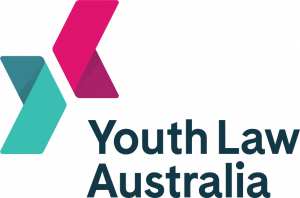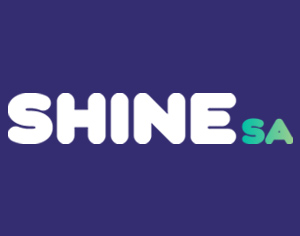It is important that you understand your legal rights and responsibilities as well as those of the people you are having sex with. There are laws about having sex with someone without permission, the age at which young people can have sex, sexual harassment and taking and sending sexual images of young people.
When it comes to the law ‘sex’ means all types of sexual activity and sexual touching between all types of people, including masturbation and oral sex.
In addition to laws about sex it’s also important to know what your rights are when accessing sexual health care.
Consent
Consent means to agree to do something or to give/gain permission.
Consent must be given freely and voluntarily, without pressure, manipulation or coercion. Consent must be gained before all sexual activity and be checked and given throughout the sexual experience. Consent can be withdrawn at any time. Just because someone does not say ‘no’, it does not mean that consent has been given.
Sexual activity without consent is rape (more information on this can be found at the Legal Services Commission and Youth Law Australia).
The law says that some people cannot give consent to sexual activity, including if they:
- are under the age of 17
- are asleep or unconscious
- are so affected by drugs and/or alcohol that they are confused or unsure about what is happening
- cannot understand what the sexual act is and are not able to freely agree to the sexual activity due to a mental, physical or intellectual condition
- have been manipulated, threatened or forced into sexual activity
- only agreed to engage in the activity because of a misrepresentation (whether express or implied) of using a condom during the activity. This is also called stealthing and it is a criminal offence in South Australia if you remove a condom during sex without consent.
Age of consent
In South Australia the legal age of consent is 17.
When you are 17 years old you can legally have sex with another person of any gender who is 17 years old or older as long as you both agree to it.
When you are under 18 it is a serious criminal offence for someone who is caring for you, supervising you or has authority over you to have sex with you (for example, a teacher, sports coach, youth worker, counsellor, foster carer, religious instructor, health professional, police officer or employer). This is because their position of power over you reduces your capacity to consent without manipulation or coercion.
Sexual assault
Sexual assault, sometimes called sexual abuse, includes a number of serious criminal offences including rape (sexual intercourse – oral, anal, vaginal penetration by any part of the body or object – without consent), indecent assault, unwanted sexual behaviour (e.g. touching or fondling) and making, sharing or accessing child exploitation material. Sexual assault is a breach of human rights and penalties can include being put in prison and being placed on the sex offender register. Some of these laws are different interstate and in other countries.
Rape and sexual assault are crimes.
The person committing the offence is always 100% responsible.
The victim-survivor is never to blame.
If you have been sexually assaulted, your safety is the most important thing.
You can call emergency services on 000 if you need urgent help. You can also talk to a support service like 1800 RESPECT (1800 737 732), a free, confidential 24-hour helpline for people who have experienced sexual assault or domestic violence.
In South Australia, Yarrow Place is a service for anyone who has been sexually assaulted. They provide 24-hour crisis services as well as counselling. You can find more information on what to do following a sexual assault on the Yarrow Place website.
Incest
It is a serious criminal offence for close family members to have sex with you. This is called incest. Close family members are parents, grandparents, brothers/sisters/siblings (including half-siblings). People who commit incest can be charged, put in prison and placed on the sex offender register.
Sexual harassment
Sexual harassment is any unwelcome sexual behaviour in circumstances where a reasonable person would anticipate that you would be offended, humiliated or intimidated. This includes behaviour such as unwanted sexual advances or touching, staring, sexual jokes or comments and questions about your body or sexual activities.
Sexual harassment is unlawful. If you have experienced sexual harassment, you may be able to make a sexual harassment complaint. You can learn more about this at Youth Law Australia (www.yla.org.au).
Sexting and child exploitation material
Sexting means using devices like phones or computers, or communicating via the internet, to send, request, receive or share intimate (nude) or sexual images, drawings, messages or videos.
It is not against the law to sext if you and the person you are sexting with are both 18 years or older and consent to the sexting.
It is against the law to ask for, make, or send sexual content of someone under 18 – even of yourself or someone you know. Sexual content showing or describing genital or anal areas or breasts, sexual acts or private activities (like showering or going to the toilet) of someone under 18, or who looks like they are under 18, is called child exploitation material.
There are serious legal consequences for child exploitation offences, including being put in prison and placed on the sex offender register. It can also result in serious social consequences like hurting people and damaging reputations.
Image-based-abuse
It is against the law to share, or threaten to share, sexual content, including digitally altered images, of someone without their consent. This is often called image-based abuse or intimate image abuse. If the sexual content is of someone under 18, there are additional offences relating to child exploitation material which may apply.
If you are worried about sexting or images being shared without consent, including if you have been asked for money to stop images being shared (called extortion or blackmail), you should get legal advice straight away, you can also make a report to eSafety (www.esafety.gov.au).
Pornography
Pornography is visual or written material intended to cause sexual excitement. To be legal, pornography must be made and distributed with the consent of all people involved who must all be aged 18 years or older.
It is generally legal for people under 18 to view this material. It is, however, illegal to send or to show pornography to someone under the age of 18.
Sexual material that is created or distributed without the consent of all people involved can be considered image-based abuse and is illegal. Much content freely available on the internet as ‘pornography’ could fall into this category. If the sexual content shows or describes genital or anal areas or breasts, sexual acts or private activities (like showering or going to the toilet) of someone under 18, or made to look like they are under 18, this is child sexual exploitation material and is illegal.
Your right to medical services
A young person 16 years or over can make their own decisions about their health care.
They can do things like:
- obtain contraception like the Pill
- have an abortion
- consent to medical treatment.
Young people under 16 years, must have either a parent/carer’s permission, or the person under 16 years must consent to the medical treatment and two medical practitioners agree that the young person understands the nature and risks of the treatment. At SHINE SA and other health services including the Pregnancy Advisory Centre, there are two-doctor clinics for young people under 16 who do not have parent/carer permission.
As a client of a health service, you have rights. For example, when you go to a SHINE SA clinic, you’ll be given a Client Rights pamphlet that explains your rights in seeking a service. You can ask for information about when confidentiality is or isn’t guaranteed.
How to get a Medicare card
A person 15 years or over can have their own Medicare card for seeing a doctor and getting medicine.
The quickest way to get a Medicare card of your own is to apply online via your myGov account or use the Express Plus Medicare mobile app. If you can’t apply online, you can also access a form on the Services Australia website. It’s a good idea to discuss this with a parent or carer if possible. If you apply for your own card, be aware that your name will be removed from your parent/carer’s card when their card is renewed.
If you don’t have your own Medicare card (and you’re an Australian resident) then you would still have a Medicare number on your parent/carer’s card. If you visit the doctor without this card, the doctor can obtain your Medicare number from Medicare.
Once you turn 14 your parents/carers cannot access your Medicare claims history without your consent, even if you go to the doctor using their Medicare card. They may be able to see that you went to the doctor but not what it was about.
If you don’t want your parents/carers to know that you have been to the doctor or what it was about you can pay for the appointment up front.
Getting legal advice
Trying to work out what the laws say and dealing with things like consent and sexting can be tricky. If you are worried about anything, including if someone has done something to you without your consent or if you are worried about something you have done to someone else, you can get free and confidential legal advice to work out your options from:
Further information
- Yarrow Place Rape and Sexual Assault Service: www.wchn.sa.gov.au/our-network/yarrow-place
- SA Police: www.police.sa.gov.au
- National Domestic, Family and Sexual Violence Counselling Service: www.1800respect.org.au
- eSafety Commissioner: www.esafety.gov.au
- Equal Opportunity Commission: www.eoc.sa.gov.au
- Services Australia (Medicare): www.servicesaustralia.gov.au/medicare-card
- Kids Helpline: 1800 55 1800
This Fact Sheet was developed in collaboration with Youth Law Australia.







